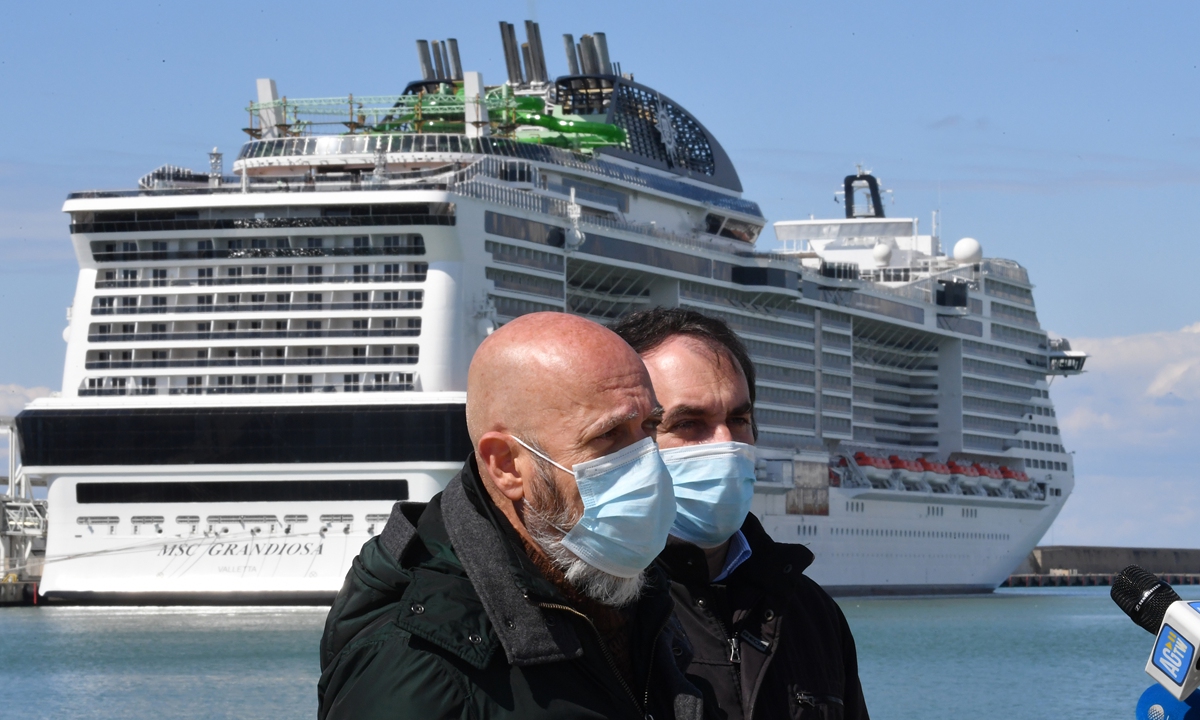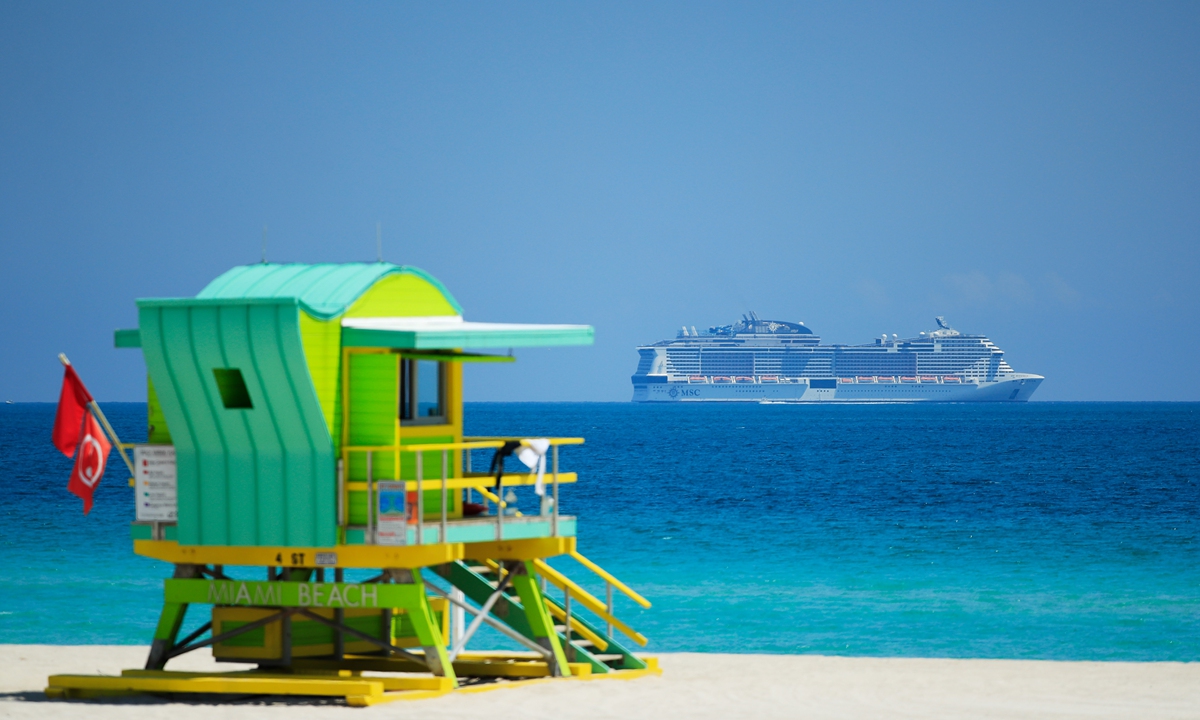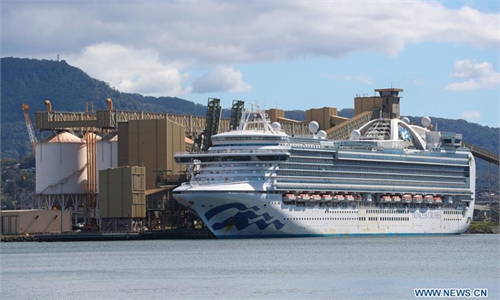TRAVEL / GALLERY
Italian cruise ships to sail again in high-stakes gamble

A photo taken on March 25 shows Civitavecchia Mayor Ernesto Tedesco addressing the media after the arrival of cruise ship Costa Victoria, with the MSC Grandiosa cruise ship docked at the port of Civitavecchia. Photo: AFP

The MSC Meraviglia is seen off the coast on March 26, 2020 in Miami Beach, Florida. Photo: AFP
Italy's cruise industry is preparing to sail again in Mediterranean waters, hoping to help jumpstart the country's economy while restoring the reputation of the beleaguered global sector.
MSC Cruises, a privately owned company based in Geneva, will resume operations with two departures from Italy this month, it said last weekend. It becomes the first global operator to announce cruises for the lucrative Mediterranean market after the coronavirus pandemic froze cruises throughout the world.
The MSC Grandiosa and MSC Magnifica are to set sail on August 16 and 29 from Genoa and Bari, respectively, to sites in Italy, Malta and Greece in a high-stakes gamble for the industry that Italian Prime Minister Giuseppe Conte has called a "fundamental part of our economy."
Italy's 14.5 billion euro ($17 billion) cruise industry - Europe's largest - is a key economic driver that supports nearly 53,000 jobs, according to the Cruise Lines International Association (CLIA).
A Europe-wide suspension of cruises through August could result in a total economic loss of about 25.5 billion euros, CLIA has calculated.
Italy approved the restart of its cruise industry from Saturday as part of efforts to revive a moribund economy devastated by a more than two-month quarantine, with cruise operations suspended in March.
"After months of lockdown... people obviously want to return to travelling, visiting places," MSC spokesman Michele Curatolo told AFP on Monday.
MSC was receiving "lots of calls" for the trips, although the ships will sail at about 70 percent of normal passenger capacity, he said, adding that the reduction "seems sufficient" to meet demand.
The Costa Crociere Group, MSC's giant rival owned by Carnival, has yet to confirm whether it will go ahead with cruises for Saturday and Sunday advertised on its website.
'Greater risk'
The industry's reputation suffered a hit with dozens of deaths and thousands of infections aboard cruise ships.
Global health authorities criticized its slow response to the spread of the virus, from lax monitoring of crew, to continued operation of self-service buffets and gyms, to lack of personal protective equipment.
At the start of the coronavirus pandemic, various cruise ships were stranded at sea around the world from Japan to California as nations, including Italy, blocked them from their ports.
As of June 11, 3,047 people were infected and 73 people died aboard 48 CLIA cruise ships, according to Johns Hopkins University data provided by CLIA.
The risk persists, according to the US Centers for Disease Control, which on July 16 extended a no-sail order in US waters until September 30.
"The current scientific evidence suggests that cruise ships pose a greater risk of COVID-19 transmission than other settings," the CDC said.
Close living and working spaces for crew and partially enclosed environments were obstacles to social distancing, it said.

